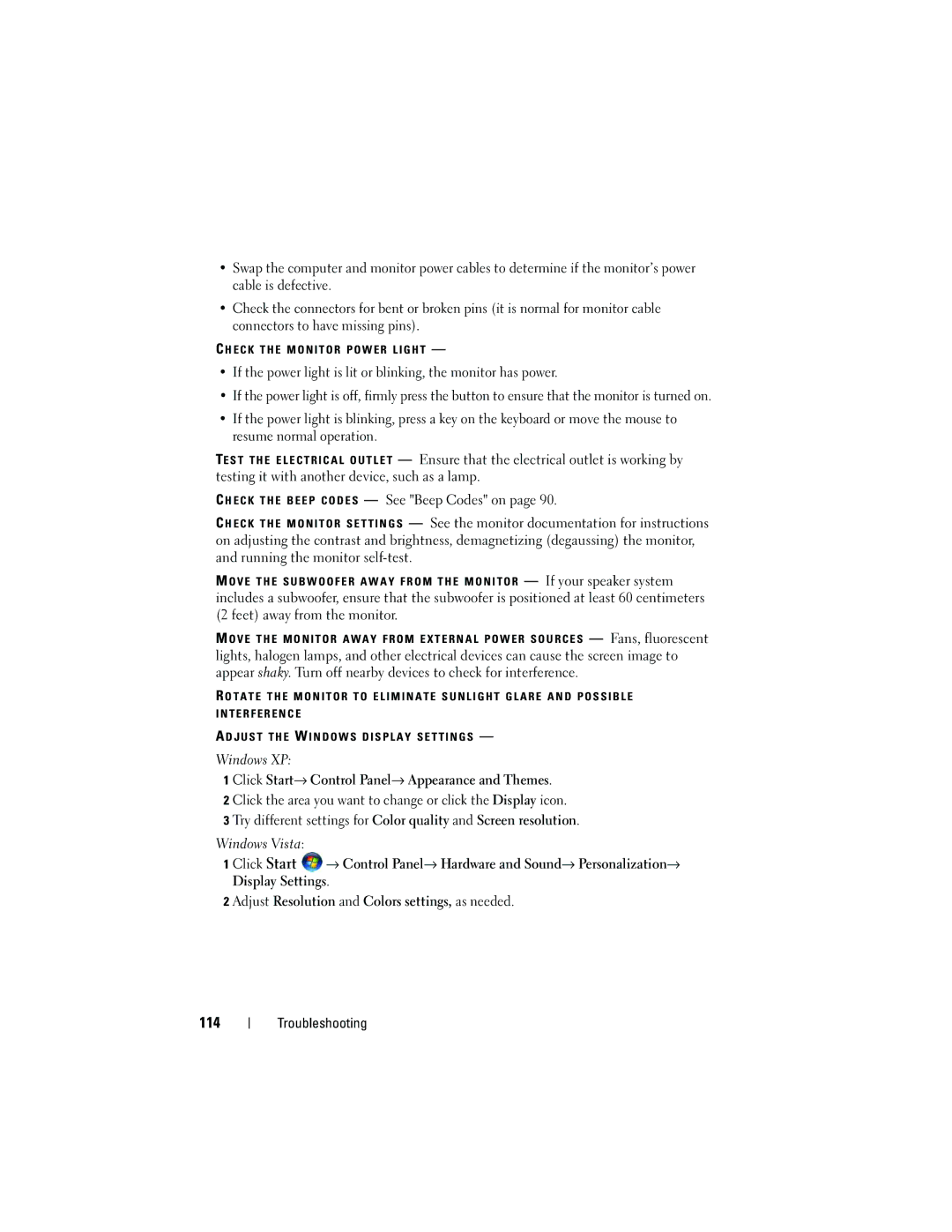•Swap the computer and monitor power cables to determine if the monitor’s power cable is defective.
•Check the connectors for bent or broken pins (it is normal for monitor cable connectors to have missing pins).
C H E C K T H E M O N I T O R P O W E R L I G H T —
•If the power light is lit or blinking, the monitor has power.
•If the power light is off, firmly press the button to ensure that the monitor is turned on.
•If the power light is blinking, press a key on the keyboard or move the mouse to resume normal operation.
TE S T T H E E L E C T R I C A L O U T L E T — Ensure that the electrical outlet is working by testing it with another device, such as a lamp.
C H E C K T H E B E E P C O D E S — See "Beep Codes" on page 90.
C H E C K T H E M O N I T O R S E T T I N G S — See the monitor documentation for instructions on adjusting the contrast and brightness, demagnetizing (degaussing) the monitor, and running the monitor
M O V E T H E S U B W O O F E R A W A Y F R O M T H E M O N I T O R — If your speaker system includes a subwoofer, ensure that the subwoofer is positioned at least 60 centimeters (2 feet) away from the monitor.
M O V E T H E M O N I T O R A W A Y F R O M E X T E R N A L P O W E R S O U R C E S — Fans, fluorescent lights, halogen lamps, and other electrical devices can cause the screen image to appear shaky. Turn off nearby devices to check for interference.
R O T A T E T H E M O N I T O R T O E L I M I N A T E S U N L I G H T G L A R E A N D P O S S I B L E I N T E R F E R E N C E
A D J U S T T H E W I N D O W S D I S P L A Y S E T T I N G S —
Windows XP:
1 Click Start→ Control Panel→ Appearance and Themes.
2 Click the area you want to change or click the Display icon.
3 Try different settings for Color quality and Screen resolution.
Windows Vista:
1 Click Start ![]() → Control Panel→ Hardware and Sound→ Personalization→ Display Settings.
→ Control Panel→ Hardware and Sound→ Personalization→ Display Settings.
2 Adjust Resolution and Colors settings, as needed.
